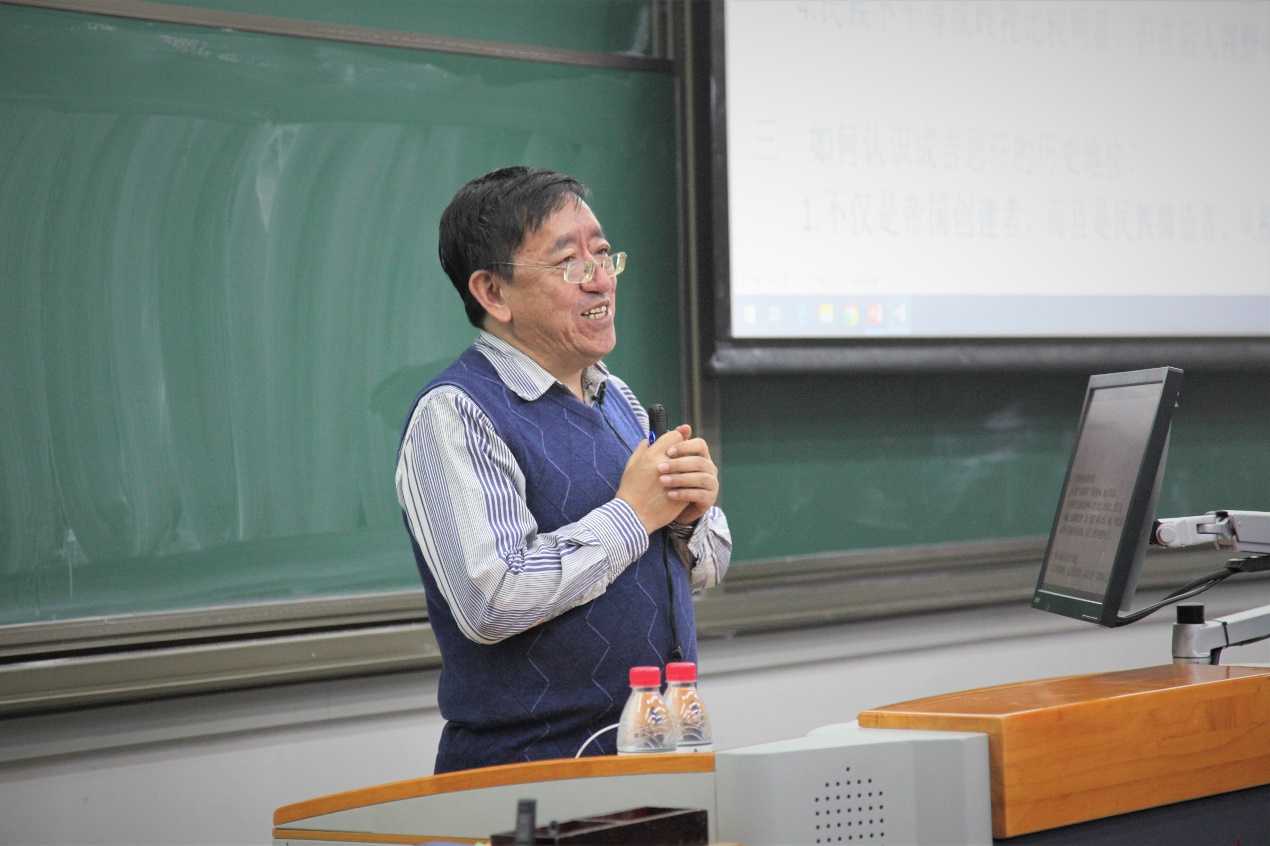[Caizhai Lecture] Zhang Fan: Views on Yuan dynasty
Nov 19, 2019
Peking University, Nov. 18, 2019: On November 14th, Professor Zhang Fan from PKU Department of History gave the 187th Caizhai lecture on how to evaluate Yuan dynasty. From the perspective of a historical researcher, Zhang discussed a series of controversial topics on Yuan dynasty, including its historical status, ruling mechanism, and rulers.
Starting with the distinction of the ancient and present meaning of “Zhong Guo” (China, literally the nation in the middle), Zhang pointed out that it was the bond between the ancient “Zhong Guo” and those surrounding ethnic groups that molded the modern “Zhong Guo”. Yuan dynasty paved a primary foundation for such transformation towards modernity. With plenty of historical facts, Zhang illustrated his views on how to evaluate the significance of Yuan dynasty in terms of consanguinity, geography, and culture.
Professor Zhang Fan giving his lecture
Zhang showed a neutral attitude to the reign of Yuan dynasty. On the one hand, Yuan dynasty has a far-reaching political influence on the development of China which inherited its broad territory, multiple ethnic groups, and administrative system. On the other hand, without foreign aggression, Yuan dynasty lasted shorter than the regular duration of a dynasty according to the periodic law, largely because of its decrepit regime and cultural disintegration. Meanwhile, ethnic inequality and discrimination are also prominent problems in Yuan dynasty.
As for the ruler of Yuan dynasty, Zhang indicated that the distinctive feature of Genghis Khan from other emperors was that he was both the founder of the Mongol Empire and the creator of the Mongolic ethnic group. Having changed the historical structure of Mongolian area, Genghis Khan can be regarded as a symbol of national identification and ethnic sentiment, whereas the wars he waged did cause damage to Chinese civilization. Zhang then elaborated on the massacres during the Mongolian conquest in respect to Chinese and foreign historical materials, Mongol rulers’ different methods of governance in war- and peacetime, and the overall feature of ancient wars, suggesting that researchers should delve deeply into historical data. Later, Zhang responded to the audience’s questions about the factors that reduced the lifespan of Yuan dynasty, the Mongols’ attitude to the policies of the Central Plain, and the ways that Yuan government ruled its border areas.
Written by: Fan Xueyuan
Edited by: Zhou Yijing
Source: PKU News (Chinese)
